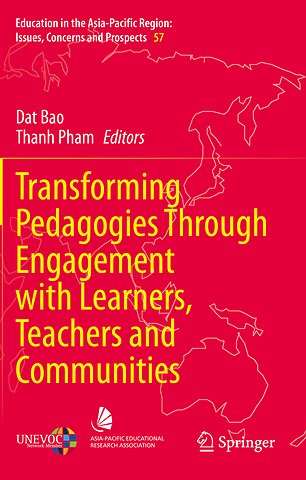Transforming Pedagogies Through Engagement with Learners, Teachers and Communities
Samenvatting
This book identifies three types of influential forces that pose challenges to innovations: socio-cultural dynamics, teacher individuality, and local circumstances. It uses languages, cultural traits, and intellectual heritages in the Asia-Pacific region as an example to show the resistance to Western-based pedagogies due to disparities between the innovations and these local heritages. It reveals personal and professional values that teachers hold and how these values, while seemingly supporting creative ideologies, happen to prevent them from incorporating innovations in their practices. The book discusses how informal educational activities and services that a society possesses could impede pedagogical innovations. There is, therefore, a need for institutions and educators to develop a positive relationship between these phenomena and teaching innovations.
Specificaties
Inhoudsopgave
Net verschenen
Rubrieken
- aanbestedingsrecht
- aansprakelijkheids- en verzekeringsrecht
- accountancy
- algemeen juridisch
- arbeidsrecht
- bank- en effectenrecht
- bestuursrecht
- bouwrecht
- burgerlijk recht en procesrecht
- europees-internationaal recht
- fiscaal recht
- gezondheidsrecht
- insolventierecht
- intellectuele eigendom en ict-recht
- management
- mens en maatschappij
- milieu- en omgevingsrecht
- notarieel recht
- ondernemingsrecht
- pensioenrecht
- personen- en familierecht
- sociale zekerheidsrecht
- staatsrecht
- strafrecht en criminologie
- vastgoed- en huurrecht
- vreemdelingenrecht

